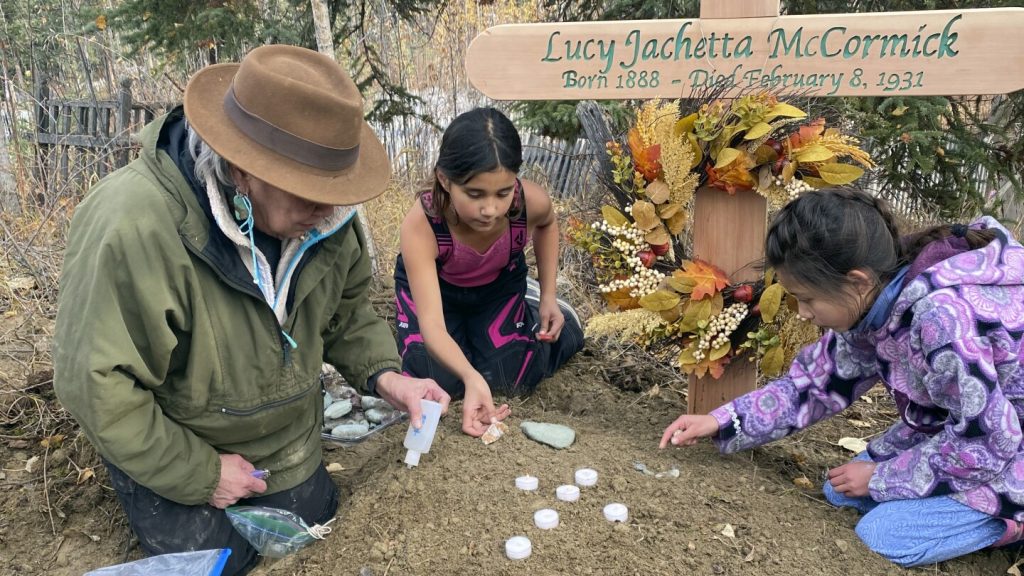In a heartwarming story coming out of Alaska, Lucy Pitka McCormick, who passed away in 1931, was recently honored by her family in a traditional Koyukon Athabascan burial ceremony. McCormick was one of around 5,500 Alaskans who were sent to a hospital in Portland, Oregon, between 1904 and the 1960s after being deemed “really and truly insane”. Many of these individuals never returned, leaving their families in the dark about their fate. These individuals are now known as the Lost Alaskans.
For over 15 years, volunteers in Fairbanks and Portland have been working diligently to identify and return the remains of those sent to the hospital in Portland. Much of the hospital’s records were lost in a fire in 1968, making the research process challenging. Former Alaska health commissioner Karen Perdue and other volunteers have combed through archives and records to gather information about the patients, including details about their commitments, deaths, and burial locations. Through their efforts, a new database was launched in February to help families search for their lost relatives who were sent to the hospital.
The hospital in Portland, initially founded by Dr. Henry Waldo Coe in the late 19th century, received a government contract to care for mentally ill Alaskans starting in 1904. Patients ranged from miners to housewives, Alaska Natives to a co-founder of Juneau, with various conditions such as postpartum depression, epilepsy, and addiction. The hospital’s treatment of its residents came under scrutiny in the 1950s, leading to its eventual closure in 1968. Today, a mall stands on the former grounds of the hospital in Portland.
One of the volunteers, Eric Cordingley, played a crucial role in documenting burial sites at various cemeteries and obtaining Oregon death certificates for the patients. Cordingley has been volunteering at his neighborhood cemetery for about 15 years and decided to create databases to aid families in finding their lost loved ones. Thanks to his efforts, Lucy McCormick’s grave marker was found, and her family decided to bring her remains back to Alaska for a proper burial.
In a touching ceremony, McCormick’s family launched four boats on the Yukon River to transport her remains back to her birthplace in the village of Rampart. She was laid to rest overlooking the village and the river, surrounded by her loved ones and the spirits of eagles and swans. This emotional journey serves as a reminder of the importance of never giving up hope or trying to bring lost souls back to where they belong, ensuring their spirits can finally rest in peace. The story of Lucy McCormick and the Lost Alaskans is a testament to the power of honoring and remembering those who have been forgotten for so many years.
To access the new database and learn more about the Lost Alaskans, visit www.lostalaskans.com. You can also explore the previous blog at www.morningsidehospital.com and find virtual cemeteries dedicated to Alaska Natives who died at Morningside and other patients who passed away at the hospital in Portland. Through these resources, families can begin the journey of reconnecting with their lost relatives and bringing closure to a chapter that has haunted them for decades.


